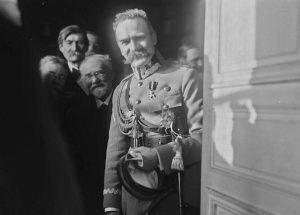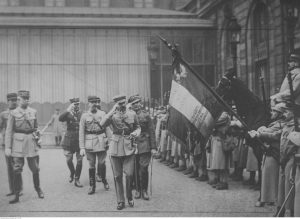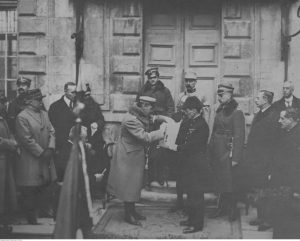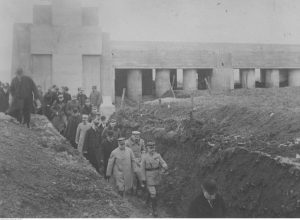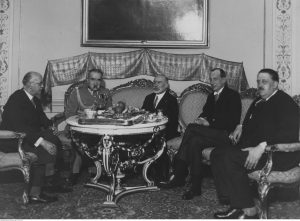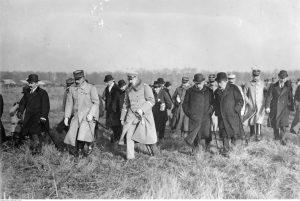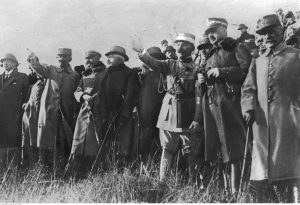Poland is aware of the role which has fallen to it in the east of Europe of spreading peace and civilisation; it is a role which corresponds to the mission France has in the west. Poland will persist in fulfilling its mission and do so in ever closer co-operation with France while remaining faithful to the high principles which led the Allies to victory
Józef Piłsudski
The French Republic was the newly created Polish state’s most important ally. During the First World War the Polish National Committee had been active in Paris. In that period the Polish Army in France was formed; it was led by General Józef Haller who had previously been an officer in the Polish Legions. At the Paris Peace Conference France’s stance was generally sympathetic to Poland’s territorial aspirations. France supported Poland during the 1919–20 Polish-Soviet war by sending military advisers and military supplies. Józef Piłsudski cherished the tradition of Franco–Polish friendship and right at the start of the First World War he informed the governments of France and Britain that military action undertaken by the Polish Legions would be directed solely at Russia.

The resolution of the Polish–Soviet War significantly strengthened Józef Piłsudski’s standing in the international arena as he was now both the head of state and a victorious military leader. In December 1920 the President of France Alexandre Millerand invited him to visit Paris. A political and military alliance and economic co-operation resulted from this visit, which took place 3–6 February 1921. Piłsudski had meetings with President Millerand, whom he had first met at the 1896 congress of the Socialist International, and with Marshal Ferdinand Foch, who was made a Marshal of Poland in 1923. Piłsudski was also shown around the military academy in Saint-Cyr and visited the site of the Battle of Verdun. During this visit Piłsudski bestowed the Virtuti Militari Silver Cross on the city of Verdun emphasising that the city had taken on the status of a symbol and was greatly admired by those whose hopes were tied up with French victory in the First World War.
